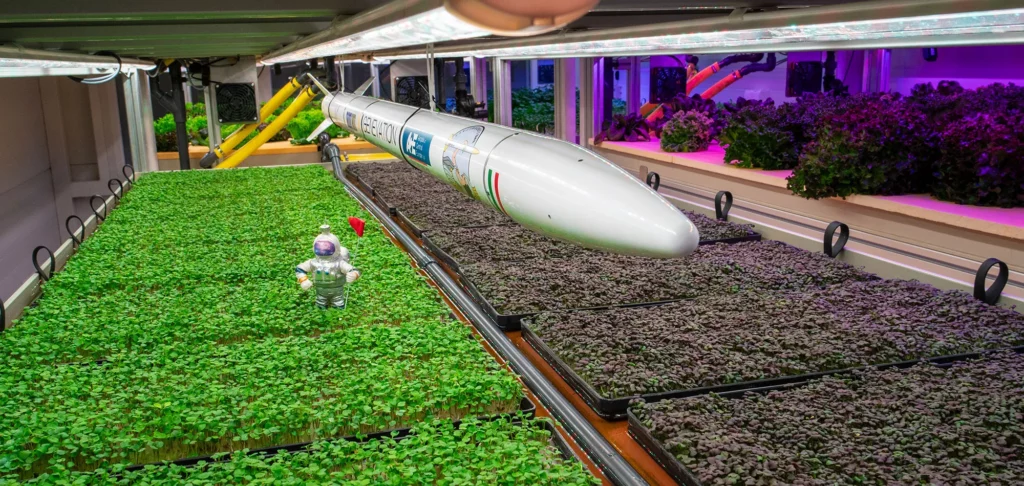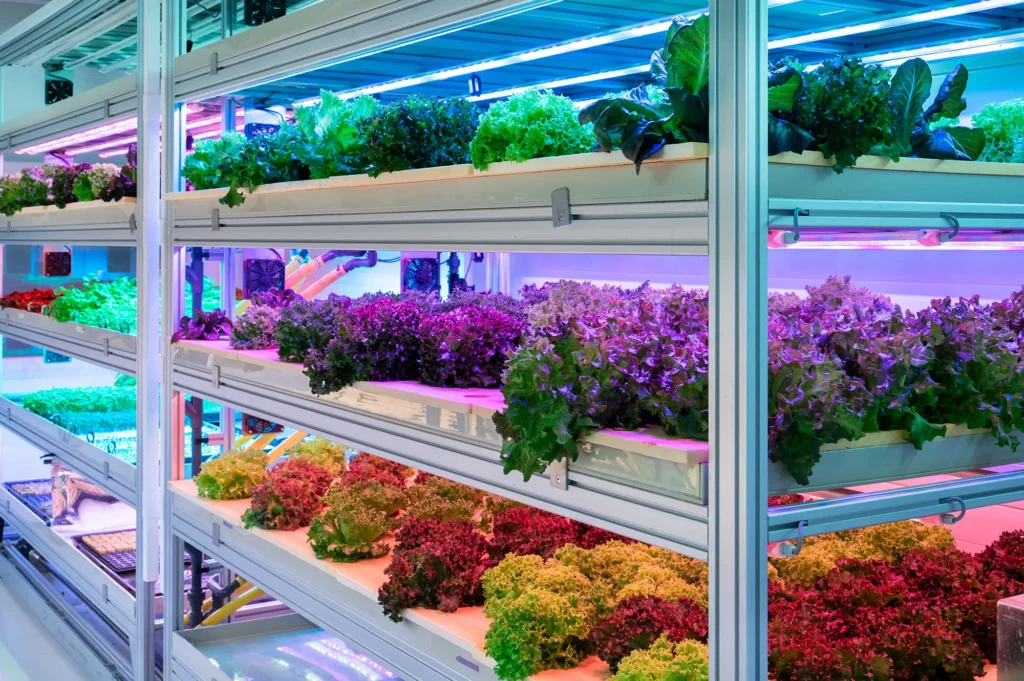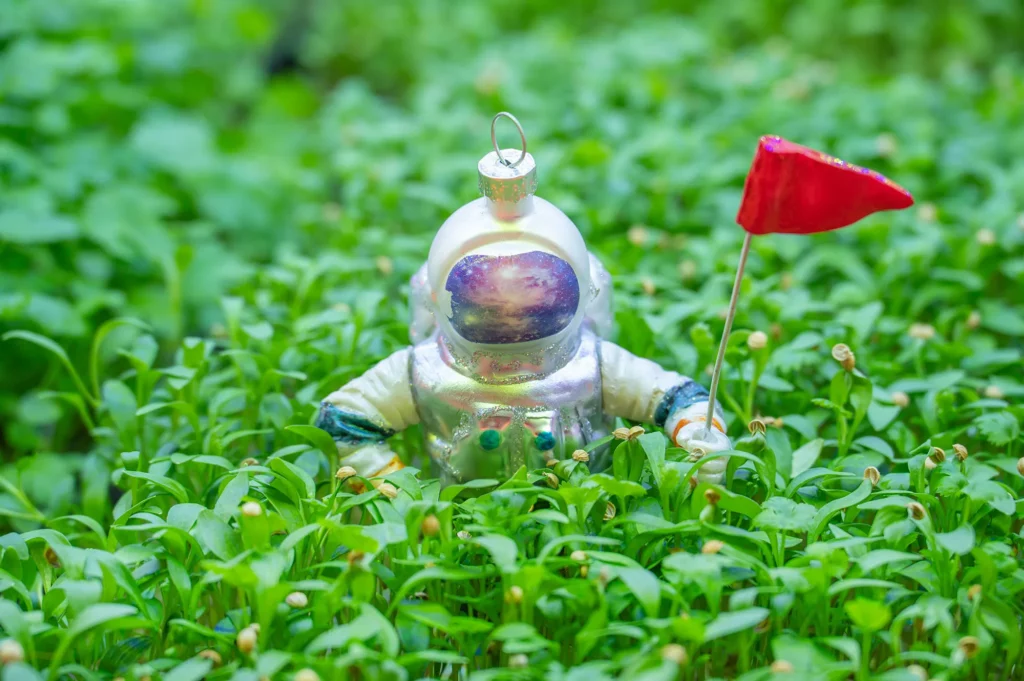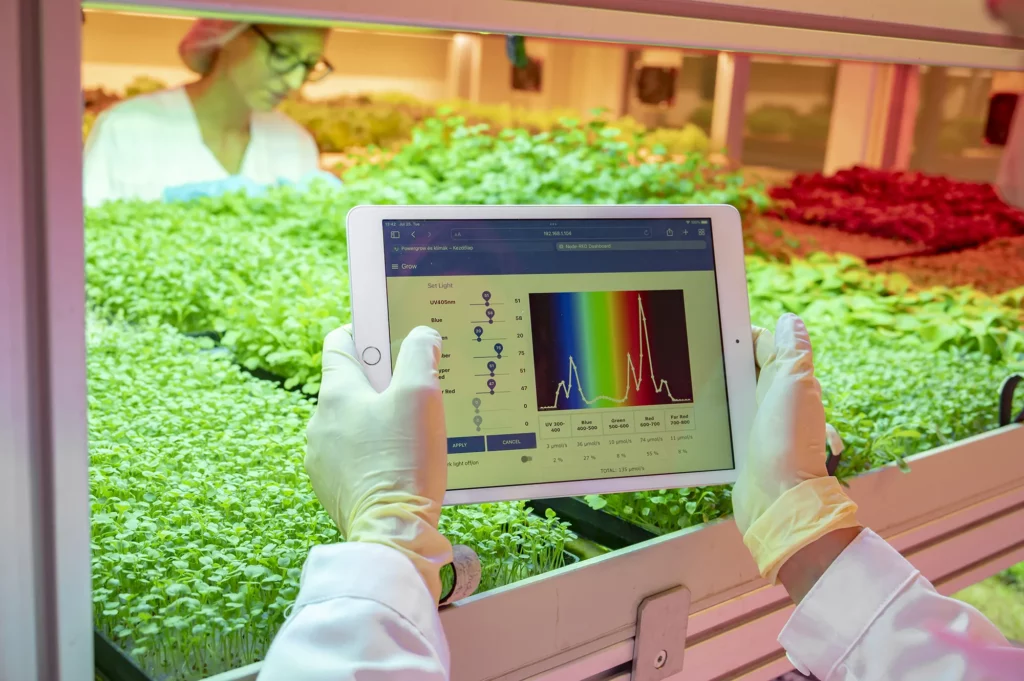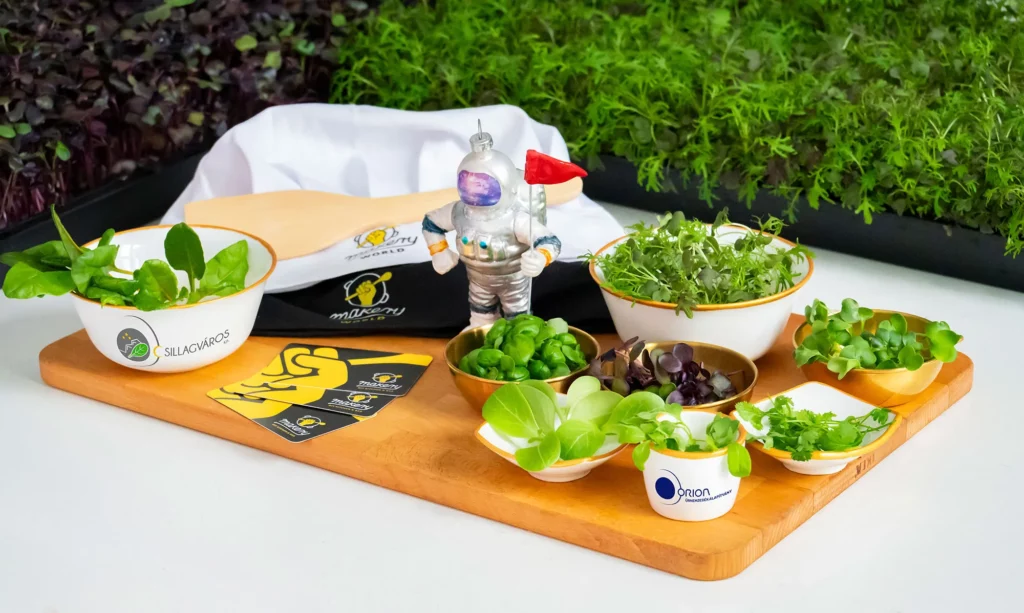CULTIVATING COLONIZATION PLANTS
FOR THE FUTURE AND THE FUTURE'S SAKE
For the ORION Space Generation Foundation and its subsidiary, Csillagváros Ltd., growing leafy greens, producing seedlings, and cultivating strawberries represent a significant direction, offering not only new dimensions for space travel but also enhancing the efficiency and sustainability of terrestrial agriculture.
Located in the heart of Budapest, the vertical farm is a multi-site Controlled Environment Agriculture (CEA) facility staffed by professionals focused on research, development, and innovation. Production takes place in five separate, fully individually controlled vertical farm rooms and three small plant-growing cabinets.

Through the collaboration of the ORION Foundation and Csillagváros, the vertical farm goes beyond traditional plant cultivation. The innovative growth of colonization plants not only diversifies food sources but also ensures that astronauts and future space travelers have access to healthy and nutritious food during long-term space missions. The foundation’s commitment to research, innovation, and sustainability aligns with the important goals associated with colonization plants. Inspired by space exploration, Csillagváros not only focuses on cultivation but also applies the knowledge and technologies gained to improve Earth’s agriculture, contributing to solving global challenges in sustainable food production.
A New Era of Progress
This collaboration means that colonization plants represent not only future food sources but also mark the beginning of a new era in which humanity pioneers in both space exploration and Earth’s sustainability.
The relevance of vertical farms stems from global challenges facing humanity, such as overpopulation, limited arable land, soil degradation, and the impacts of climate change. Vertical farms, developed in response to these challenges, use automated systems that enable continuous plant production 24/7. With chemical-free production and strict technological standards, products are safe to eat without washing, offering food-grade quality.
The nutritional content of the plants can also be regulated during growth. For example, the vitamin C content in lettuce can be increased, and their water needs can be reduced by up to 95% compared to traditional farming methods, which could be critically important for long-duration space missions and research expeditions.
Growing colonization plants presents numerous challenges for researchers. Environmental factors aboard space stations, such as zero gravity, limited water resources, and plant protection issues, require new approaches. Closed systems like the hydroponic method used at Csillagváros—where plants are grown with nutrient solutions instead of soil—help increase efficiency.
Colonization plants are vital not only for astronauts’ nutrition but also for providing psychological and mental support during long space journeys. Various aspects of space farming, such as NASA’s VEGGIE project, the optimization of nutrient cycles, air filtration, and air quality improvement, as well as other research goals, contribute to the complexity of growing colonization plants.
Our commitment to growing colonization plants not only serves our own progress and research but also connects us on a shared path of innovation and creative collaboration. In this spirit, we are delighted to present our unique partnership with Budapest Makery. This collaboration marks another important milestone in the intellectual and technological strengthening of our project.



